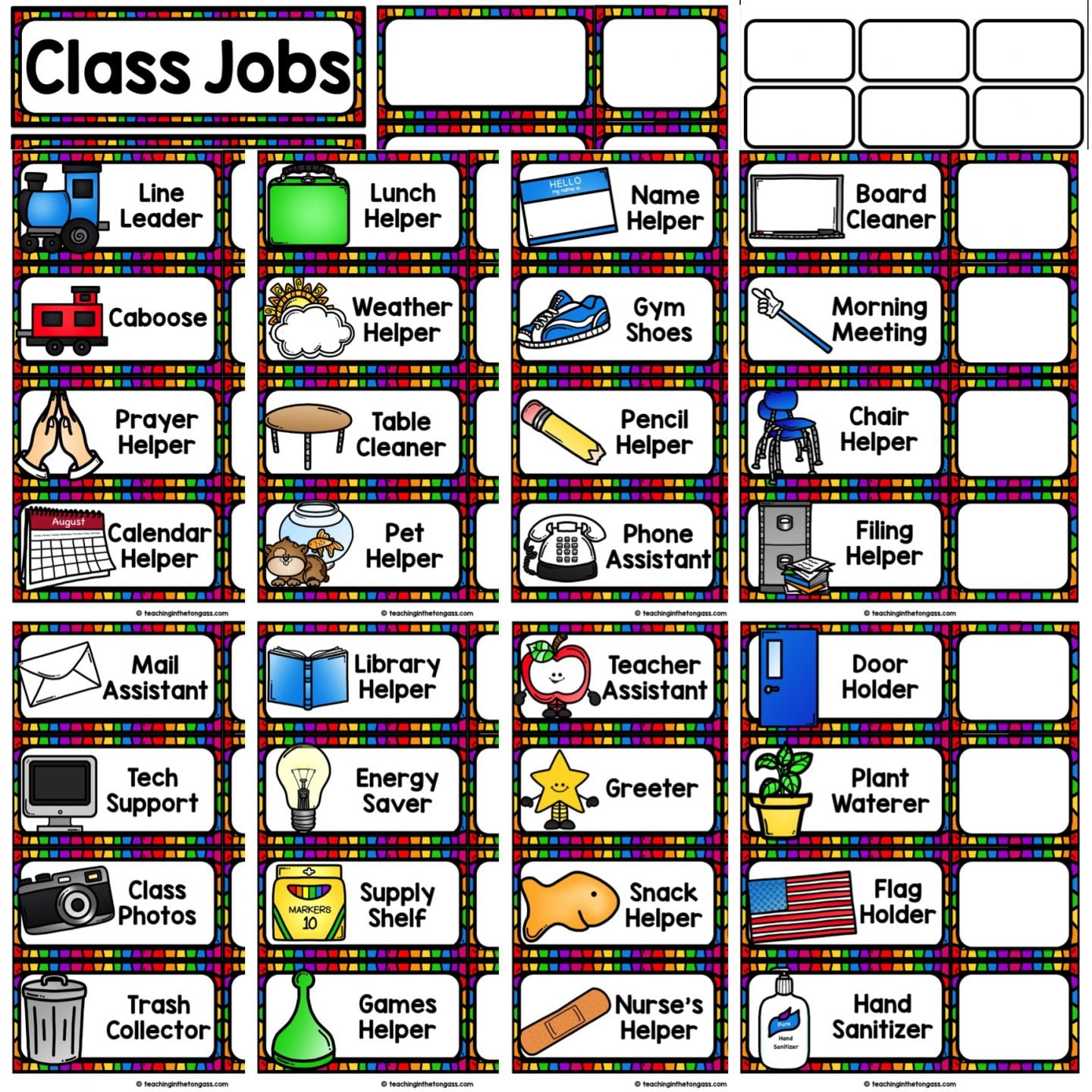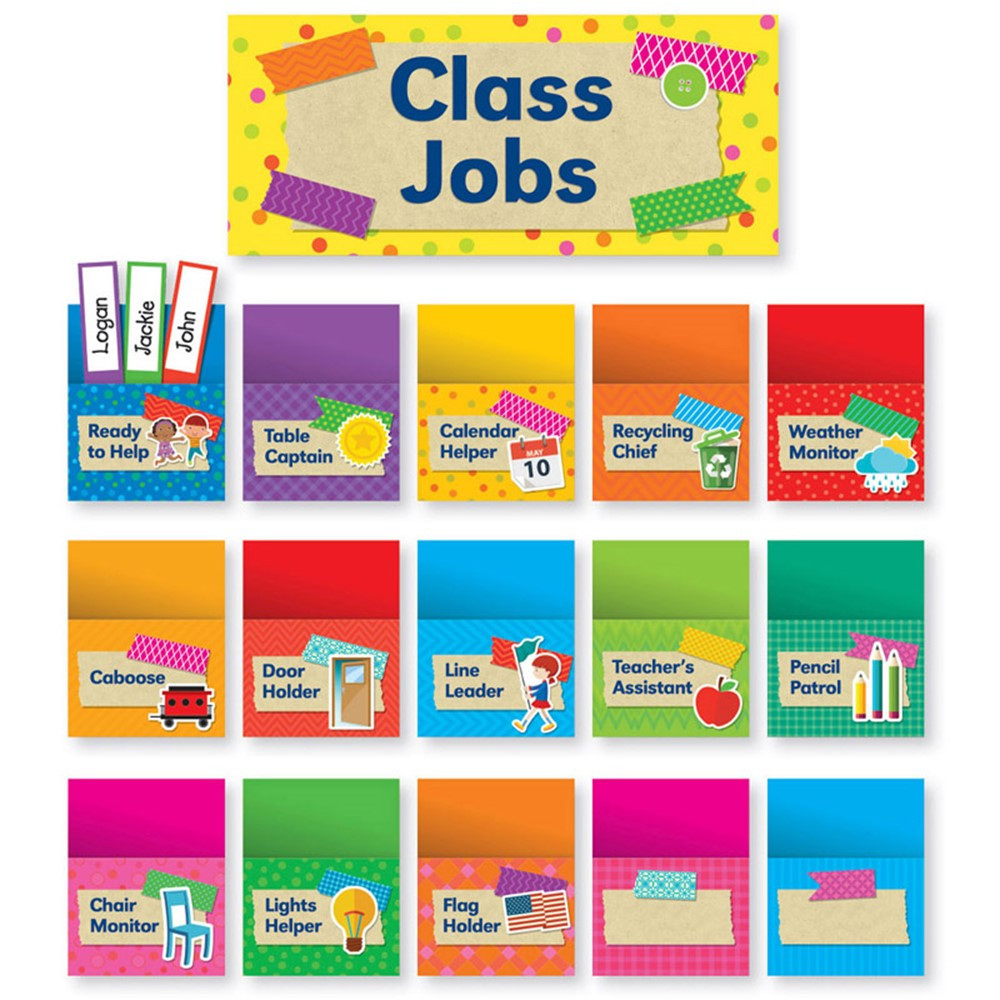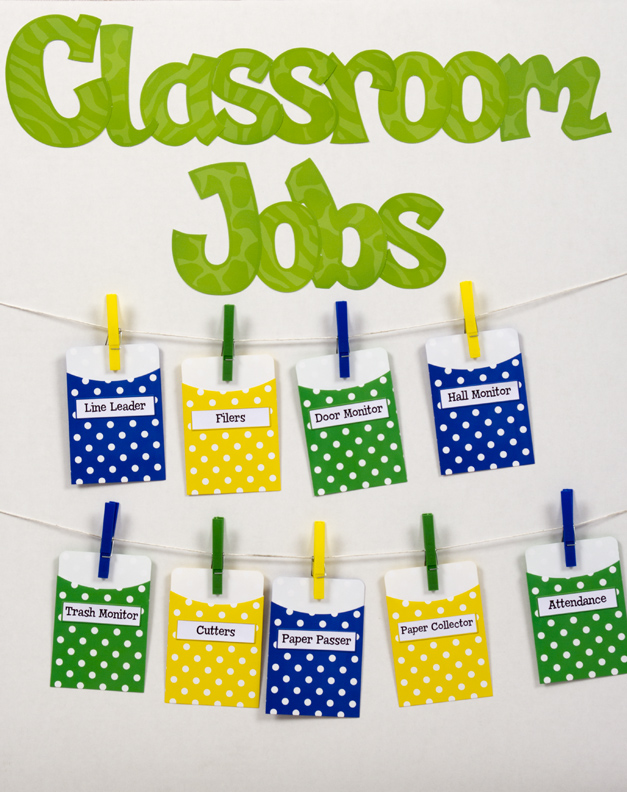
Introduction
A classroom jobs board is a valuable tool for managing responsibilities and fostering a sense of community within the classroom. By assigning various tasks to students, a jobs board not only helps to distribute the workload but also teaches important life skills such as teamwork, time management, and accountability. This article will explore the benefits of implementing a classroom jobs board and provide practical tips for its effective use.
Benefits of a Classroom Jobs Board
1. Promotes Responsibility: Having assigned jobs gives students a sense of ownership and responsibility for maintaining the classroom environment.

2. Fosters Collaboration: Students learn to work together and support one another as they fulfill their assigned tasks.

3. Develops Life Skills: Classroom jobs help students develop essential life skills such as organization, time management, and problem-solving.

Setting Up a Classroom Jobs Board
1. Determine Job Categories: Divide the tasks into categories such as classroom maintenance, technology support, library organization, and classroom helpers.

2. Assign Job Titles: Create appealing and descriptive job titles for each task, such as "Classroom Librarian" or "Tech Guru."

3. Display the Jobs Board: Design an eye-catching and easily visible bulletin board to showcase the available jobs and assigned students.

Implementing the Classroom Jobs Board
1. Job Application Process: Have students fill out a job application form indicating their top three job preferences and reasons for their choices.

2. Rotating Jobs: Rotate job assignments periodically to ensure that every student gets an opportunity to experience different roles.

3. Training and Support: Provide necessary training and support for students to excel in their assigned jobs, including clear instructions and resources.

Building a Positive Classroom Culture
1. Recognition and Rewards: Acknowledge and appreciate students' efforts through verbal praise, certificates, or small rewards to motivate them.

2. Reflection and Feedback: Encourage students to reflect on their job performance and provide feedback to improve the effectiveness of the jobs board.

3. Celebrate Achievements: Organize periodic celebrations where students can showcase their work and celebrate the successful functioning of the jobs board.

Conclusion
A classroom jobs board is a powerful tool for enhancing student engagement, responsibility, and collaboration. By implementing and effectively managing a jobs board, teachers can create a positive classroom culture where students learn valuable life skills while contributing to the overall functioning of the classroom. Start implementing a jobs board today and witness the positive impact it has on your students' development.